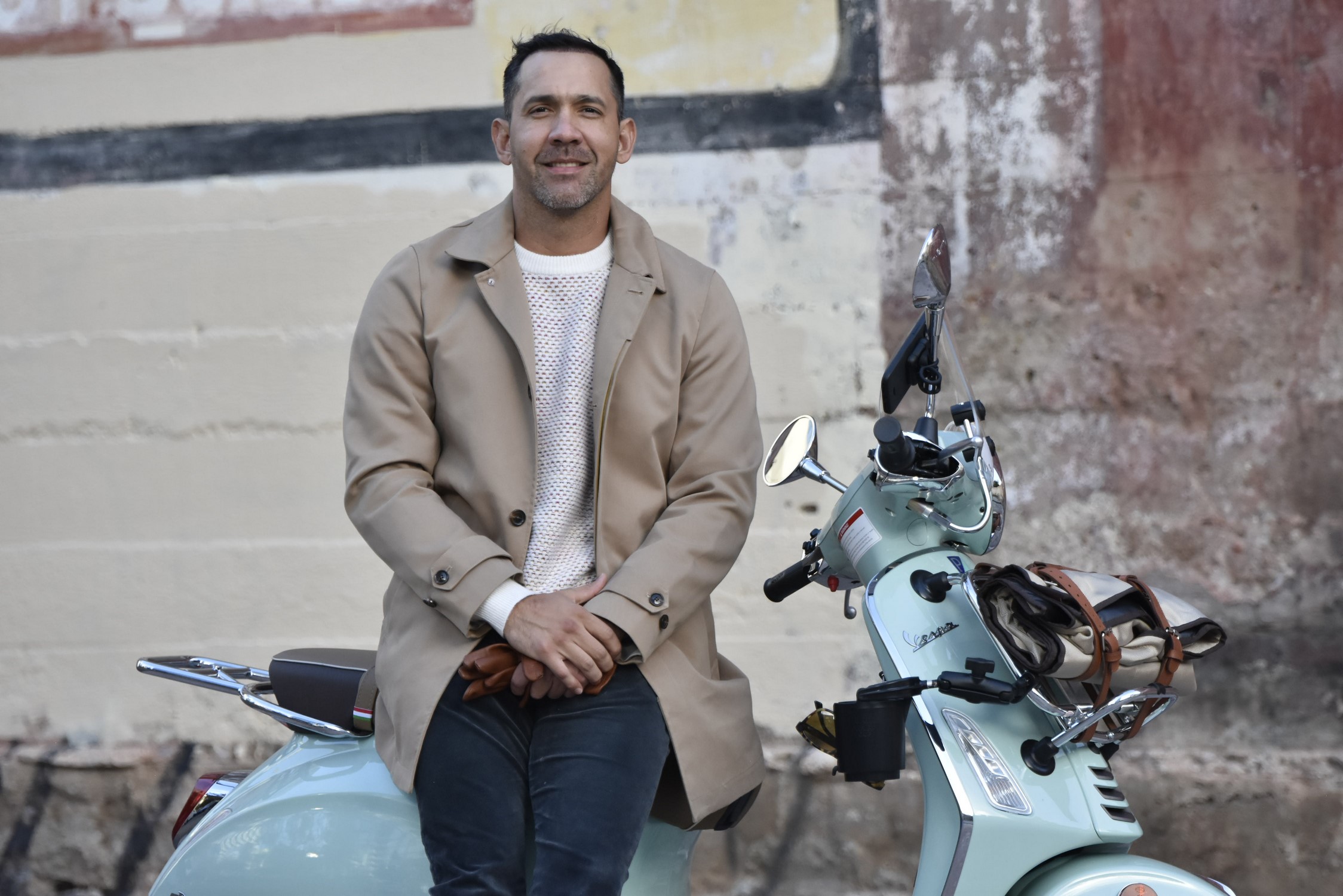The genesis of my new book, “Jiu-Jitsu Bravehearts,” dates back to one of the now-famous Jocko Willink’s first Muster events in 2017. I began studying jiu-jitsu in 2011 with the simple goal of getting in shape and increasing my overall health. I wasn’t looking for what the Eastern religions call a “Way,” but that’s what I found.
In 2017, I was in my mid-thirties, and I’d had more successes and losses in business than many people would have in ten lifetimes (and there were many more to come). Until the age of 30, I believed that those I looked up to in the business world were simply lucky like they were just in the right place at the right time. They made it seem so easy with their cool content, their New York Times bestsellers, and the corresponding lifestyles that they were not shy to share. When I compared the ups and downs that I’d experienced, I thought I was mostly shaped by destiny, rather than will.
If anyone can change up my false mentality, it’s Jocko Willink. His book “Extreme Ownership” is drawn from his experience as a Navy SEAL and endorses the practice of taking full accountability for every outcome one experiences in life. Like the business guru Alex Hormozi says, ‘It’s not your fault, but it’syour problem to solve.’ Jocko’s work caused a sea of change in my mental state, and I signed up for one of his first workshops (at no small cost).
The seminar proved to be worth its weight in gold, for more reasons than one. I was surprised and fascinated that weekend by Jocko. Before going to this event, I knew he had been a student of jiu-jitsu for more than 20 years, but it didn’t fully dawn on me the opportunity in front of me. Empowered by Jocko’s demeanor and inspired by his eloquence, I made a decision then and there: I was going to capture the stories of as many great practitioners of my favorite sport/martial arts as I possibly could. I instantly pulled out a notebook and feverishly scribbled a list of target interview subjects as he spoke, and I instantly set out on a mission to bring together a diverse array of jiu-jitsu champions, celebrities, and influencers.
It took me five years to work my way through that list. Some of the names were easier to pin down than others. I’m lucky to study jiu-jitsu with some of the world’s greatest living legendsthrough this book, such as Roger Gracie, and it made my job a bit easier in some cases to be introduced to those later, which I would otherwise have a hard time reaching. For example, I was fortunate that Roger put me in touch with Russell Brand, who generously agreed to speak with me. (and was funny as all hell, yet super intelligent and cerebral of course!)
The most difficult interview of all to secure was—you guessed it: Jocko Willink. Jocko was the last person I interviewed. I spent years trying unsuccessfully to get my idea in front of him, but I had no intention of publishing the book without his input. After four years, I found out that Jocko was releasing his own brand of protein shakes, Jocko MÖLK, so I met him in person at a local store where he was promoting the product launch. After waiting in line to speak with him, I explained that he’d been the source of inspiration for a passion project, my book. He was impressed by my tenacity and persistence and agreed to be interviewed. It’s fitting that the interview with Jocko took the most determination and persistence to finally capture.
The journey I went on to collect the stories in this book mirrors my journey in life. Nothing worth doing comes easily. The writing of this book is a testament to my passion and perseverance, as well as to the transformative power of the martial arts. As you explore deep into the pages of “Jiu-Jitsu Bravehearts,” I hope you will be inspired by the practitioners’ dedication and resilience, the adversities they overcame in their lives, in order to leave an indelible mark on the sport.
I didn’t want my book to be about diets or training regimens. All that stuff is already in the public domain anyway. What I really wanted to do was to show the adversity that the greats overcame, the times in their career when they were so down that they almost quit, and instead, WHY they kept going.
Jiu-jitsu mirrors life’s unpredictability and demands constant adaptation. It intertwines physical prowess with mental acuity, pushing practitioners to relax, breathe, and strategize even in the tightest situations. It fosters perseverance, problem-solving, and coming up against one’s own limitations. It shows us that the universal fear of failure is not only acceptable but that it is actually necessary for growth. Its lessons extend to the virtues of preparation and repetition, and the value of camaraderie.
Finally, one of jiu-jitsu’s greatest gifts lies in its ability to anchor us in the present moment, providing a form of forced meditation that transcends the distractions of the digital age and fosters gratitude and mental resilience.
I hope you will join me and the sport’s luminaries on a journey that inspires you to join us on the mat to take your own.

